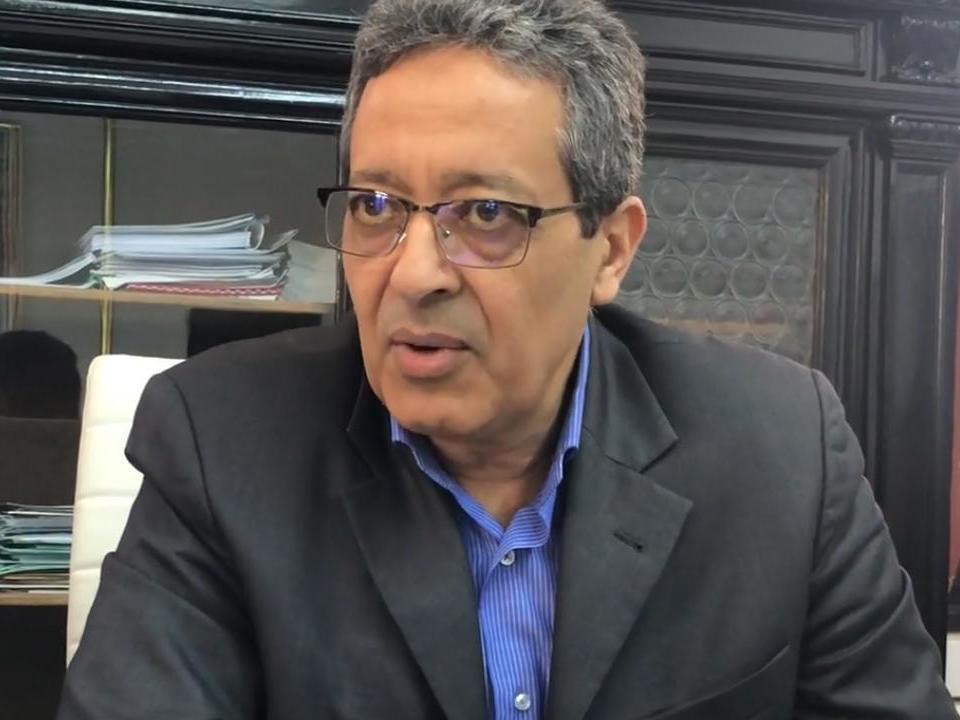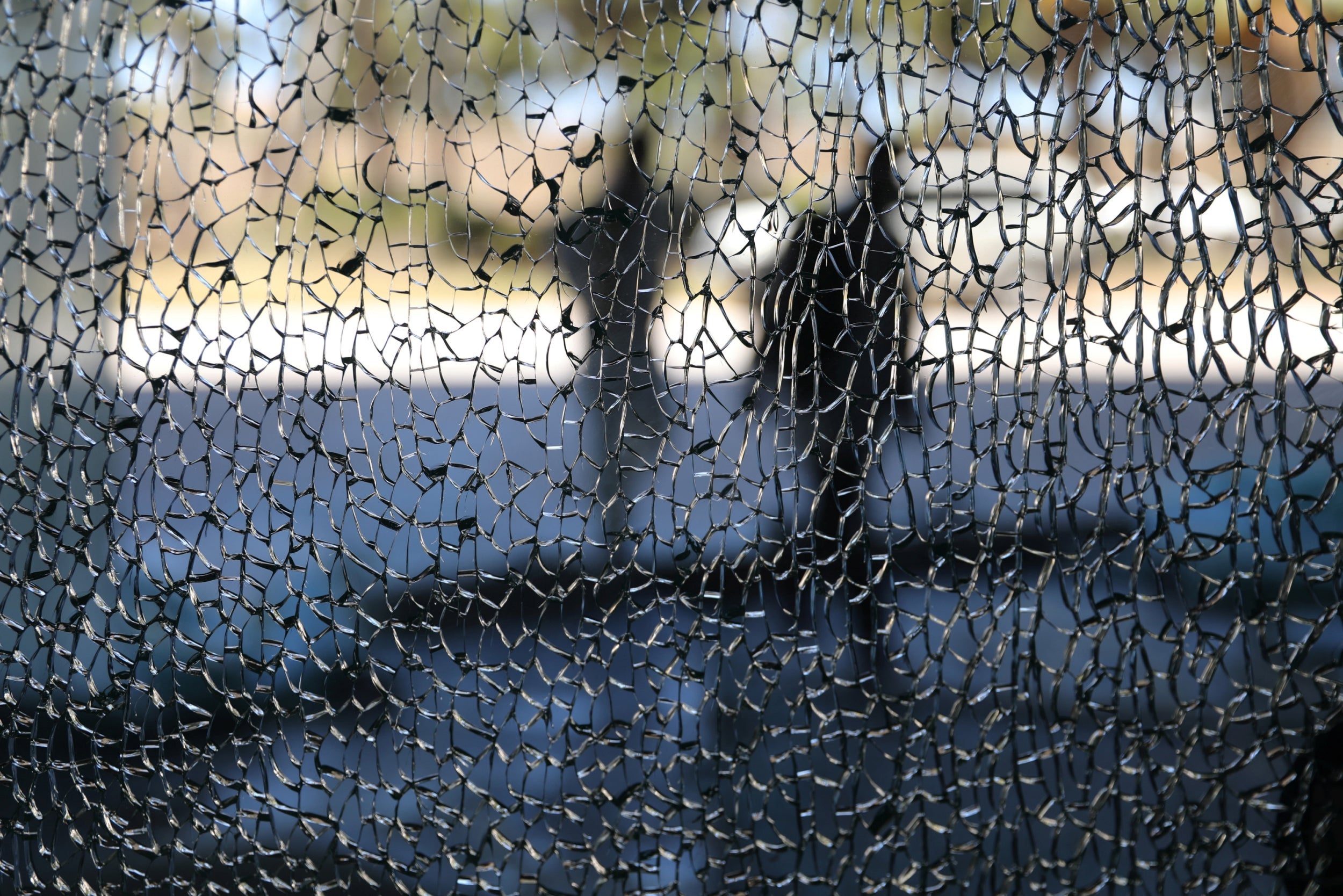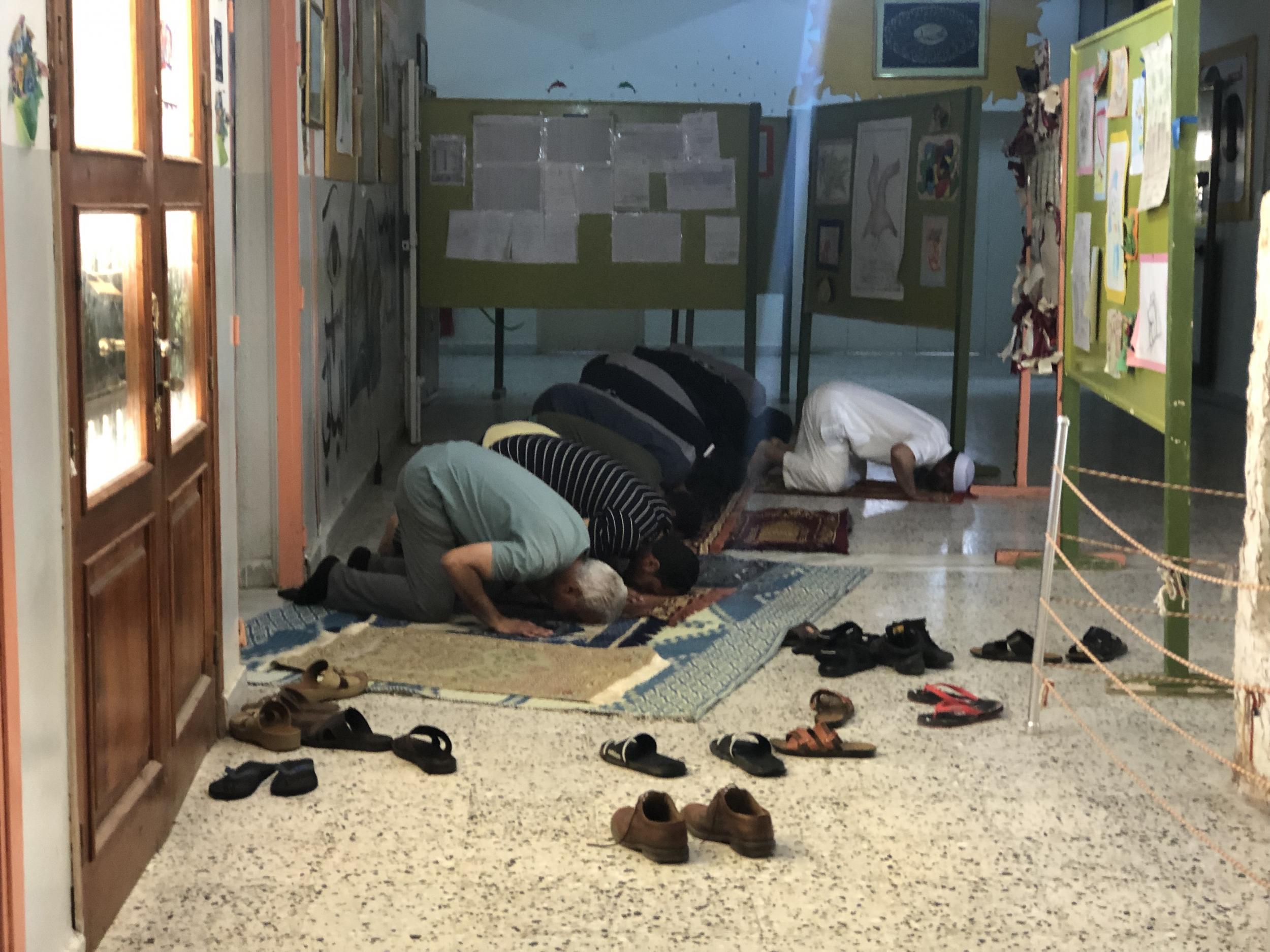Militias, power cuts and scarce resources: a mayor’s fight to keep a city under siege together
The Battle for Tripoli, part three: Abdul-Raouf Beit al-Mal hoped his tenure would be dominated by flourishing start-ups and a development boom - instead he is having to cope with war
Your support helps us to tell the story
This election is still a dead heat, according to most polls. In a fight with such wafer-thin margins, we need reporters on the ground talking to the people Trump and Harris are courting. Your support allows us to keep sending journalists to the story.
The Independent is trusted by 27 million Americans from across the entire political spectrum every month. Unlike many other quality news outlets, we choose not to lock you out of our reporting and analysis with paywalls. But quality journalism must still be paid for.
Help us keep bring these critical stories to light. Your support makes all the difference.
When Abdul-Raouf Beit al-Mal, the mayor of central Tripoli, was abducted last year, and held by militiamen for 24 hours, he presumed that would be the worst moment of his career – perhaps his life.
But the biggest test was yet to come. With a new war encroaching upon Libya’s capital, the crumbling, cash-starved city is once again engulfed in a chaotic armed conflict that is swelling the ranks of the displaced and straining Tripoli’s limited resources.
On 4 April, Beit al-Mal’s city came under attack by the so-called Libyan National Army of rebel warlord Khalifa Haftar.
“What’s happening is really hurting us,” he says. “The city needs everything. We need to fix the roads, the infrastructure, sewage, water, electricity, parks, garbage collection.”
Greater Tripoli is home to 3 million, spread out across 13 municipalities. After the collapse of Muammar Gaddafi’s regime in a 2011 armed uprising backed by Nato, there were plans to unify the disparate parts of the city under one local government, but they came to naught.
Central Tripoli is the biggest of the 13. It has about half a million people, and perhaps a million or so more a day flooding in for work, school or in desperate attempts to seek meetings at the many central government offices including the national oil company and the central bank.
Beit al-Mal, an engineering graduate from Utah State University who speaks flawless English, was elected in 2014 municipal elections, before the start of the civil conflict that has pitted Haftar against various other armed forces. His mandate was set to expire last year, but because of the chaos, no new elections have been held.

He had hoped to bring his engineering skills and problem-solving acumen to help fix the city. Instead, he’s been plunged from one crisis to the next, as various armed groups battle each other for control – over turf and resources.
The mayor’s jurisdiction includes the ancient but crumbling medina built by Phoenicians, Romans, and Ottomans – the city’s oldest quarter – and the elegant but fraying downtown built by Italian colonisers a century ago. It includes Martyrs’ Square, the heart of the city, and lively districts of hotels and cafes where much of Tripoli’s nightlife unfolds.

Until Haftar’s offensive, it appeared Tripoli might be heading towards better times. Just six months ago, under pressure from the UN, Tripoli militias agreed to withdraw from the city, and to be folded into the army and interior ministry, or to demobilise and return to civilian life.
In March, civic leaders organised a small business conference at the Radisson Blu hotel along the waterfront. And in April, a peace conference was supposed to bring all the country’s various factions to the table in the city of Ghadames.
But the country’s latest war has halted all such plans, and quashed any nascent sense of optimism.
The city needs everything. We need to fix the roads, the infrastructure, sewage, water, electricity, parks, garbage collection
“We need to focus on developing schools and launching start-ups,” says Salah Taqhi, 54, a Tripoli developer.
“Instead of paying attention to ways to improve the economy, we’re again in war. Now we’re talking about refugees.”
As the war came to the city’s edges, thousands of residents began leaving their homes, crowding into a city centre already clogged with traffic and residents. Nearly 80,000 people have been displaced by the eight-week conflict, the number rising every day, according to the United Nations.
“We have 250 families that are registered,” Beit al-Mal tells The Independent in an interview in his city hall office.
“Most of the people are living in either rented houses or are staying with their friends and family. We don’t have much information on them, but we know there are thousands of them.”
The displaced need shelter, blankets, food, and medicine, as well as medical care.
The war has created other problems. Rubbish collection has crawled to a halt, with some companies complaining that the city’s landfill sites are too close to the front line. Heaps of rotting rubbish pile up along the streets.
The shelling and rocket attacks have damaged infrastructure, including schools and mosques, as well as residential buildings in areas that have been largely evacuated. The destruction accumulates daily.
The interior ministry of the Tripoli-based government announced on Tuesday that four homes and a hospital were struck by a barrage of missiles fired by Haftar’s forces on the Ain Zara district of the capital.
Beit al-Mal worries about the coming summer months, when power outages will add to already strained services if the war continues.
“There’s going to be a crisis beyond our abilities if this war continues,” he says. “We’re already suffering from electric power cuts. If the temperature rises and the fighting continues, that will damage power lines. We’re already in a crisis. During peaceful times we can deal with that. But during a war it’s much more difficult.”
The UN is helping to provide some food and resources to the displaced, as well as to African migrants stuck in Libya – often at detention centres. Resources are scarce.
“We cannot provide services for our own people,” Beit al-Mal says. “It’s eight years after the revolution and you still have all this chaos. Garbage is everywhere. Healthcare is not functioning. We don’t have money to provide services for the our own people.
During his kidnapping, he says he refused to give in to the gunmen’s political demands, which he declined to elaborate upon, but was released under local and international pressure after 24 hours.

He hopes international pressure will convince the warring parties to stop, even if it’s just to prevent migrants from travelling to European shores and Libyan refugees from fleeing the country.
“If the international community is really worried about this problem they should look at the problem of Libya as a whole,” he says. “If the war continues for a longer time, we will see a lot of big problems on all fronts.”
Read the first parts of the The Battle for Tripoli series here, Libya: UN-backed government defending capital from warlord Haftar now using drones on front lines; On the front lines in Libya’s latest war, a proxy battle is leaving the civilians to suffer
Subscribe to Independent Premium to bookmark this article
Want to bookmark your favourite articles and stories to read or reference later? Start your Independent Premium subscription today.

Join our commenting forum
Join thought-provoking conversations, follow other Independent readers and see their replies
Comments